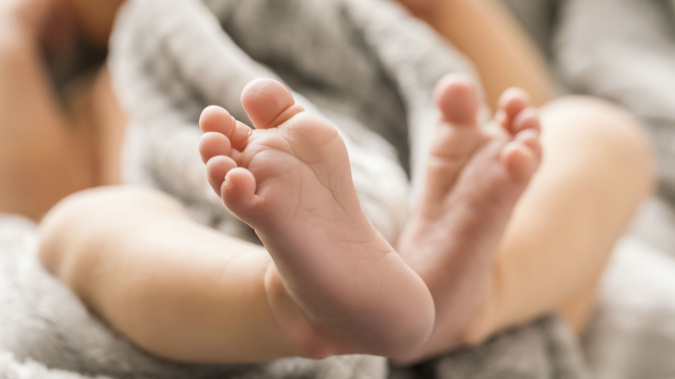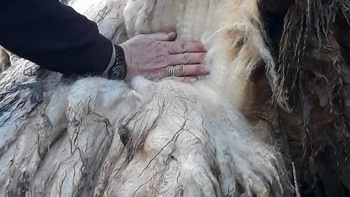
Doctors have raised concerns over a Coroner finding that linked the possibility of alcohol being passed on in breastfeeding to the death of a baby.
Two-month-old Sapphire Williams died in January 2017 with a high level of alcohol in her system. The cause of death wasn't ascertained, but in a finding released on Friday Coroner Debra Bell warned women not to drink while breastfeeding.
A group of doctors have now written an open letter in response. Co-author Dr Heather Johnston said hundreds of signatures had been gathered, including from obstetricians and paediatricians.
"Using the information available to the public, and some reasonable assumptions, it can be calculated that the maximum blood alcohol concentration that baby Sapphire could have reached by ingesting her mother's breastmilk is around a tenth of what has been reported," Johnston told the Herald.
"To reach a blood alcohol level of over 300mg/100ml from drinking breastmilk, her mother's blood and breast alcohol level would likely have needed to be four times higher than the highest levels ever recorded."
Johnston said the main danger in drinking and breastfeeding wasn't alcohol being passed on to baby.
"Dangers of making poor decisions or having impaired judgement, accidental injury through dropping the baby, or falling asleep in bed with the baby while under the influence of alcohol, are much more dangerous than the baby consuming a small amount of alcohol via the breastmilk. These are the risks to a baby of any intoxicated parent - breastfeeding mum, formula-feeding mum, or dad."
Sapphire and her twin sister were pre-term born at 33 weeks gestation with low birth weights and related medical issues.
About 1am on January 2, 2017 Sapphire woke crying and while her mother waited for a bottle of formula to cool she gave her some breast milk.
When the other baby woke crying, she placed Sapphire on the bed. On her return she noticed Sapphire had blood coming from her nose and was unresponsive.
Pathologist Dr Simon Stables carried out a post mortem examination which revealed the high level of alcohol - 308 milligrams per 100 millilitres of blood - in Sapphire's heart and a lesser amount in her liver. Re-testing confirmed the result.
He said the alcohol findings were difficult to explain as no alcohol was found in the stomach.
Sapphire's mother had told police that the day before her baby's death she had drunk a box of premix Bourbon and Cola, raising the possibility of transfer through breastmilk.
Dr Stables found the cause of death "unascertained", but said "contributing conditions were acute alcohol intoxication, dangerous sleeping environment, prematurity, possible septicaemia, possible mechanical asphyxia, asphyxia due to suffocation".
However, he also cited a research paper that found if a mother drank four drinks of 12gm of pure alcohol and then breastfed her child, the child would still not have a blood alcohol concentration of more than 0.005 per cent.
He therefore concluded it was impossible to fully understand the alcohol reading result, and "given the other possibilities he is of the opinion that the cause of death should be stated as unascertained".
Coroner Debra Bell found "it is more likely than not" that the alcohol reading was a result of alcohol consumed by the baby's mother. The case also highlighted the risks of bed sharing, she said.
"This case does highlight the fact that even with the knowledge of the dangers of drinking alcohol whilst breastfeeding, errors of judgment still occur which may contribute to the death of an infant. Therefore, I stress the importance to breast-feeding mothers not to consume alcohol at any stage."
Dr Heather Johnston took issue with that recommendation, saying for most women, breastfeeding and sensible alcohol consumption is safe.
Dr Sherly Parackal works in the University of Otago's Department of Preventive and Social Medicine, and is a leading expert on alcohol consumption among pregnant and breastfeeding women.
Parackal, who is not involved with the open letter, told the Herald that 308 milligrams of alcohol per 100 millilitres of blood would be fatal for a baby.
"However, what is not clear to me is how this much alcohol accumulated in the baby's bloodstream."
Earlier, Auckland paediatrician Dr Alison Leversha told the Northern Advocate the case was "very unusual".
"I haven't, in my professional experience, ever seen a case of alcohol poisoning through breast milk."
However, she said: "The main advice, if you are pregnant or breastfeeding, is not to consume alcohol because alcohol passes very freely into the baby and that has lifelong effects on brain development."
Take your Radio, Podcasts and Music with you









